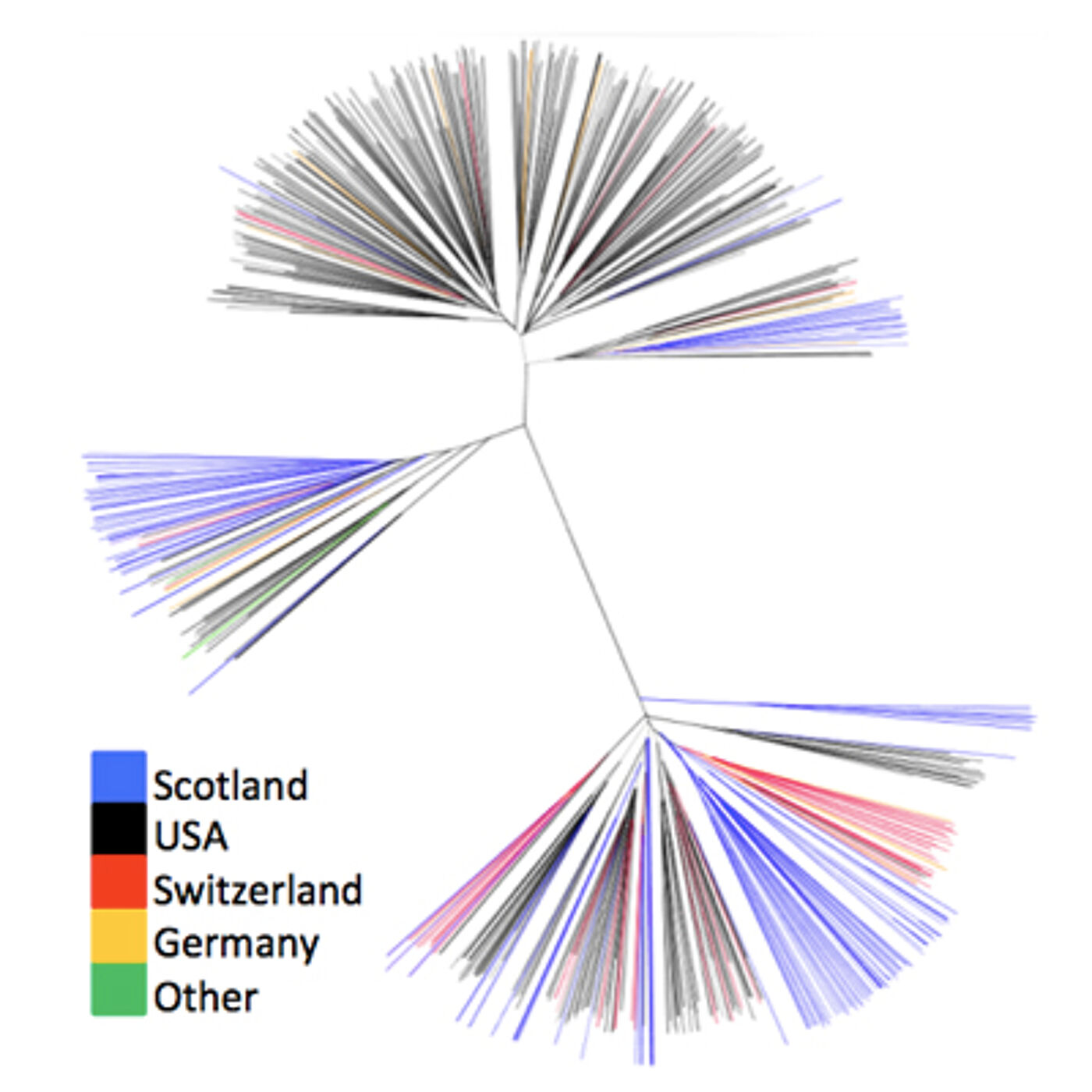Hepatitis C virus
Hepatitis C virus (HCV) infects an estimated 2.2% of the world population, which equates to about 130 million people. The virus usually establishes a chronic infection in the liver that promotes serious hepatic disorders such as decompensated cirrhosis and hepatocellular carcinoma over a period that can take decades. Chronic HCV infection is a global healthcare problem due to uncoordinated intervention strategies to halt the spread of infection, lack of diagnosis and poor access to therapy. The virus has a positive-sense RNA genome, which is a highly variable in nucleotide sequence. As a consequence, developing anti-viral compounds that cure infection has been challenging and no vaccine is available.
CVR researchers are investigating the genetic diversity of HCV at the human population level; the immune response & host factors that control infection; design and development of a HCV B-cell vaccine.
Contact: John Mclauchlan, Arvind Patel, Emma Thomson
[Top]

Variation of HCV genotype 1a sequences in Scotland and other countries.
Viral hepatitis programme

